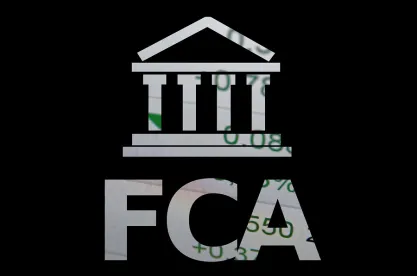On April 6, 2018, the U.S. District Court for the Eastern District of Pennsylvania granted a motion for summary judgment filed by a waste company in an implied certification case under the False Claims Act (FCA), holding that the relator failed to satisfy the Supreme Court’s materiality standard announced in the landmark Escobar case.
The claims in U.S. ex rel. Cressman v. Solid Waste Services, Inc. arose from waste company employees discharging leachate, a liquid that passes through or is generated by trash, onto a grassy area at a transfer station, rather than sending the leachate to a treatment plant. The relator reported the leachate discharge to the Pennsylvania Department of Environmental Protection (DEP), which conducted an investigation. The waste company cooperated in the investigation, conducted its own investigation, and took corrective steps in response to the allegations. The company also entered into a consent decree in connection with which it paid a civil penalty.
The relator then filed his qui tam action under the FCA, in which the government declined to intervene. The relator asserted that the defendant waste company was liable under the FCA because it submitted claims for payment to federal agencies without disclosing its violation of environmental regulations arising from the leachate discharge incident.
In moving for summary judgment, the defendant argued that the relator had not demonstrated that the defendant’s alleged failure to disclose the regulatory violations arising from the discharge incident was material to its right to payment by the federal agencies. Indeed, the defendant argued that the violation had nothing to do with the waste disposal services it was contracted to perform for those agencies.
The court agreed. First, the court observed that the defendant’s contracts with the federal agencies at issue did not even involve the transfer station where the leachate disposal occurred. As such, the court held that the violation “was not remotely related to Defendant’s service contracts with the Federal Agencies” and as such “failed to substantiate a FCA claim under Plaintiff’s posited theory of recovery.” The court then squarely addressed materiality, holding that the relator failed to meet the Escobar standard:
In addition, to meet the materiality requirement for his FCA claims, Plaintiff must present evidence that the Federal Agencies for whom Defendant performed waste pickup services would not have paid Defendant’s claims had they known of the February 25, 2013 Discharge Incident/Violation at Defendant’s Souderton Division transfer station. Plaintiff has presented no such evidence. To the contrary, record evidence demonstrates that the Federal Agencies did not deem the February 25, 2013 Discharge Incident/Violation material to their payment of the submitted invoices. For example, record evidence shows that the government agencies to whom [Defendant] has submitted invoices for payment since the February 25, 2013 Discharge Incident/Violation have continued to pay Defendant for the waste pickup services performed even after Plaintiff filed the underlying suit and after the Department of Justice investigated the allegations contained in Plaintiff’s complaint and declined to intervene on behalf of the Federal Agencies. (emphasis added).
The court went on to emphasize the government’s lack of action after the filing of the FCA complaint:
Here, in the four years since learning of Plaintiff’s allegations in this matter, including the regulatory violations asserted and relied upon by Plaintiff, the Department of Justice has not initiated any proceedings or taken any action against Defendant. Significantly, after investigating Plaintiff’s underlying FCA claims, the Department of Justice declined to intervene and prosecute Plaintiff’s suit in the name of and on behalf of the United States Government.
This court’s decision joins the ranks of an increasingly substantial line of cases holding, based on Escobar, that what the government does—or does not do—after learning of violations is critical to the materiality analysis.




 />i
/>i

